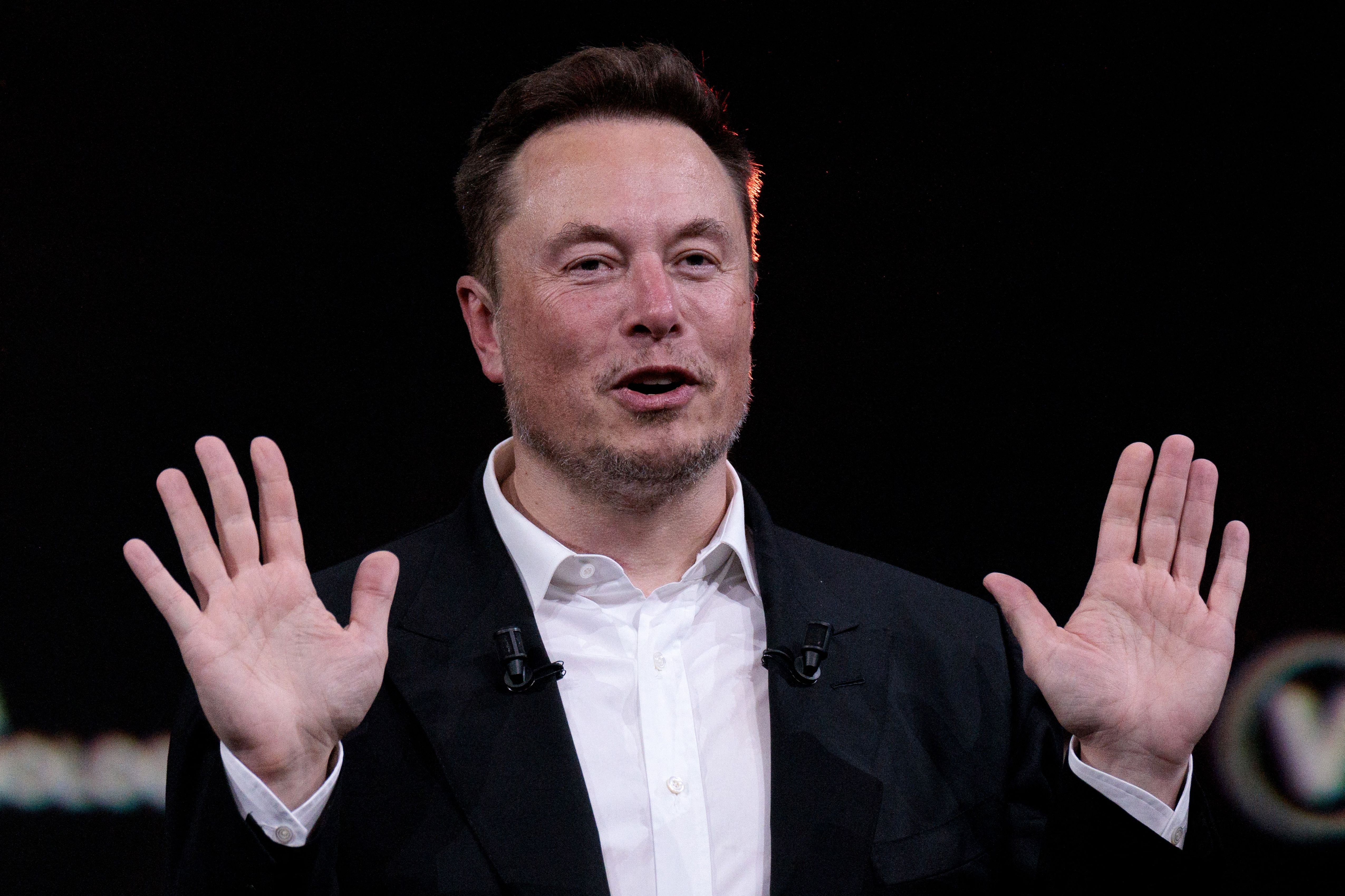Tesla profits have slumped by half. Can a cut price model save its fortunes?
The carmaker has announced a big fall in profits as demand for electric vehicles stalls, writes James Moore. Is this down to Elon Musk or is the entire electric vehicle industry suffering from engine problems?


Is Twitter – sorry X – killing Tesla? The latest results from Elon Musk’s “other” business don’t make for happy reading. Wall Street has valued the electric car maker as a fully charged growth stock in anticipation of double-digit gains every quarter. But in the first three months of 2024, the company encountered engine problems. It stopped growing.
Earlier this month, for the first time in nearly four years, the carmaker posted a decline in quarterly deliveries – down 8.5 per cent – missing analysts’ forecasts in the process, an unforgivable sin on the street of dreams. Tesla has been cutting its prices but the tactic has failed to work.
Now it has posted its full financial results for the quarter – with profits falling to $1.1bn, down by 55 per cent compared to the same three months last year. Revenues were down 9 per cent. But despite the big fall in profitability, shares have rallied, largely as a result of Tesla’s plans to manufacture yet more lower-cost vehicles.
What is the root cause of the problems at Tesla? Are Musk’s increasingly controversial outbursts damaging the brand?
There is perhaps no big company in the world whose corporate identity is so closely tied up with that of its CEO. His personal brand sells him as a maverick tech polymath, reinforced by his multitude of other interests.
Take SpaceX, and his interest in colonising Mars. Watch National Geographic’s “hard” (based on actual science and following its rules) sci-fi docu-series Mars. The drama is interspersed with documentary footage from today with Musk prominently featured. This is Elon the futurist, a charismatic visionary.
But particularly since the takeover of Twitter, the script has flipped. Musk has become a darker, more divisive and polarising figure, portraying himself as a free speech warrior while sharing right-wing talking points and tweeting often baseless conspiracy theories. There has also been a series of very public bouts of billionaire petulance.
It is hard to say quite how much impact this is having on Tesla’s sales, and the willingness of its core market to continue paying to attach itself to the Tesla, and thus the Musk, brand, but given the company’s recent struggles it surely isn’t helping.
However, there are also market forces impacting the entire electric vehicle (EV) industry that Tesla has been unable to escape. These represent a much bigger problem for the company.
EVs remain expensive when compared to traditional vehicles powered by fossil fuels, partly because their raw materials are pricey. Some of the subsidies they have enjoyed in a bid to tempt people to make the switch have also been withdrawn.
Going electric creates challenges for the consumer. Charging infrastructures aren’t always up to snuff, especially away from major urban centres. Charging takes much longer than filling up and waits can be long if you get caught short at the wrong time. Charge points can be fiddly to use. There are multiple sockets and they often require the downloading of clunky and irritating apps. There is also the question of range (although that is improving). And the consumer is expected to pay a premium for this.
These industry-wide issues are clearly playing into slowing demand market-wide. This is not just a Tesla problem. Earlier this year, Mary Barra, the boss of General Motors (GM), admitted that “the pace of EV growth has slowed” while promising to “build to demand” in future.
To maintain the growth it requires to justify its shares’ exalted rating, Tesla is pushing into the mass market as well as cutting its prices. Musk’s outbursts are arguably less of an issue in this sector. Much more important is the overall product package, the cost and the quality and the convenience vs rivals.
Tesla’s entry-level Model 3 is still in premium territory at £40,000, but a £25,000 electric hatch is due in 2025. This compares favourably to the current price of, say, an electric Vauxhall Corsa. If the reviews are similar to those of the Model 3 – the latter has a five-star rating from What Car? for example – it probably won’t much matter about Musk shooting his mouth off. What might be more troubling are the cheaper alternatives coming out of China.
Thanks to these issues, Tesla’s short-term future looks far from problem free. However, while it does not have GM’s portfolio of petrol/diesel vehicles to fall back on, it does have formidable reserves of cash; some $29bn (£23bn) at the end of last year. This is more than enough to weather any short-term storm and to fuel the future of the business.
The word “disaster” was used by analysts in connection with the deliveries results. That may be over-egging it. The longer-term destination of the car industry is still electric, even if governments have been giving EVs a colder shoulder of late. The time, effort and the sheer weight of money the industry has sunk into EVs make that inevitable. We’ve gone too far to turn back.
Tesla will remain an important part of this industry. In the short term, however, its investors still have the problem of Twitter/X. It isn’t so much what Musk has been saying as it is the amount of time he devotes to and spends on the platform, not to mention his other ventures. The carmaker is undeniably driving onto a bumpier highway. It needs its CEO to be fully focused on the road ahead.





Join our commenting forum
Join thought-provoking conversations, follow other Independent readers and see their replies
Comments